af_the-star-ingredient
A number of years ago, Lesotho star chef, Ska Moteane, received a rather unusual request from a client. They wanted her to incorporate some Sesotho dishes into a menu she was preparing for them, "and I just realised then I didn't even know how they are cooked!"
Chef Ska laughs remembering this conversation from 2009 when she had returned to her home country after walking away from a hugely successful career in South Africa.
"I looked everywhere, I went on Google, I looked in bookshops… I could not find any Sesotho recipes."
Chef Ska realised that if she didn't document Sesotho cuisine, it might disappear, so this became her labour of love.
Listen to the episode:
Saving Basotho food culture
And so, Ska travelled to the remotest parts of this mountainous kingdom; to the villages with no roads leading to them, places cut off from electricity and far removed from the conveniences of modern life.
"Everywhere I went, I was just looking for the senior people there to sit down with, so they can tell me the stories behind the food and the stories behind the dishes", she recalls.
The food Chef Ska discovered was "simple" and full of "clean flavours".
"We don't use a lot of spices. You'd find that our dishes have two, three ingredients", she says.
Sorghum and beans, amaranth, wild greens and African spinach… Chef Ska was rediscovering the food of her ancestors and taking notes.
The thing that surprised her the most was discovering how "nutritious" Basotho food was.
"Actually, we don't need more than what we have because we've always been eating complete meals".
In the beginning, the villagers received Chef Ska with a mixture of intrigue and bemusement. After all, traditional Basotho dishes are more often seen as food for the poor and aren't very popular in the cities."Everyone was like, Why? We want the Western stuff and you come to us with this boring stuff", chuckles Ska, remembering her trip.
"I'm like, Look, I just want to do it. I just want it to be documented. I want it there for my children, for my great, great, great, great, great-grandchildren. For future generations".
"I never knew how to cook it"
Upon her return Chef Ska standardised the recipes and compiled them into a cookbook, "Cuisine of the Mountain Kingdom: Cooking in Lesotho", which she then self-published.
Written in English, the book has piqued the curiosity of readers beyond Lesotho’s borders. Chef Ska's interviews have appeared in publications across Africa, Asia and Europe.
"When I self-published, it was just to keep the information", she remembers.
"I didn't know that the book would do so well because I think I didn't understand why nobody had ever thought of doing it before".
In 2012, Ska won the prestigious Gourmandet Cookbook award for best African cookbook. But the most remarkable feedback came from the Basotho people themselves.
"Basotho people were like, I never knew how to prepare this dish. My grandmother used to make it, she passed on and I never got a chance for her to teach me how it's done".
Helping highland farmers
Completely surrounded by South Africa, Lesotho is heavily dependent on its richer neighbour for resources, including remittances.
While trying to cook traditional recipes, Ska realised the scale of the challenge in securing locally grown ingredients.
Small-scale farmers struggle to bring their produce to the cities, and the cities rely instead on imported foods.
"If COVID taught us anything with the problems that we experienced during the lockdown when the borders were closed", she points out.
"We are now working very, very hard to reclaim food sovereignty, to make sure that we actually feed ourselves".
Once Ska finished writing her book, she turned her attention to educating farmers on the importance of producing and distributing local ingredients. But thankfully, she didn’t have to embark on this journey alone.
If you want to know more about Lesotho's food culture and hear the full story of Chef Ska Moteane, listen to this episode of the Star Ingredient.
Ska will also share her recipe for a traditional Basotho dish, Nyokoe.
Ingredients for Nyokoe
Sorghum
Beans
Salt
Preparation
Cook the sorghum and beans separately until soft. Sorghum might need 40 minutes to cook. Beans can take up to 2 hours depending on the variety.
Ingredients for a free-range chicken with spinach
Free-range chicken
Onion
African spinach
Rape leaves
Salt
Preparation
Clean and boil the free-range chicken until cooked. Separate the meat from the bones.
Cut the onions and fry them in a pan until golden. Add the chopped spinach and rape.
Cook for about 8 minutes. Make sure to not overcook the greens, they should be a bit crunchy.
Serve all elements on one plate and season with salt.
Bon appetit!
This project was funded by the European Journalism Centre, through the Solutions Journalism Accelerator. This fund is supported by the Bill & Melinda Gates Foundation.


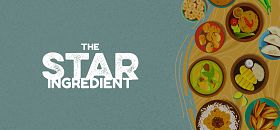
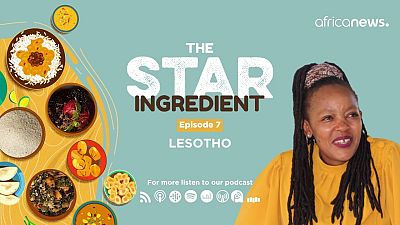







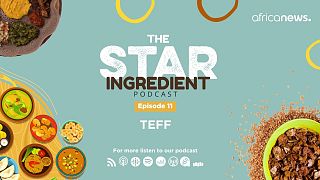
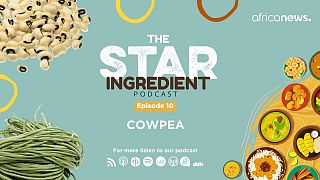
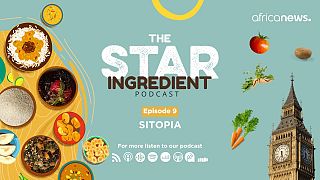



02:05
In Zimbabwe, metal scrap collecting is reducing environmental pollution
02:20
In Morocco, women keep the art of traditional rug-weaving alive
Go to video
Paraguayan town celebrates vibrant Kamba Ra'anga festival with masks, fire and tradition
02:20
In Brazil, knights and masked riders take to a football pitch for religious festival
01:30
Macron sparks global push to protect oceans
01:06
Experts warn of an increase in Glacier-related risks from climate change